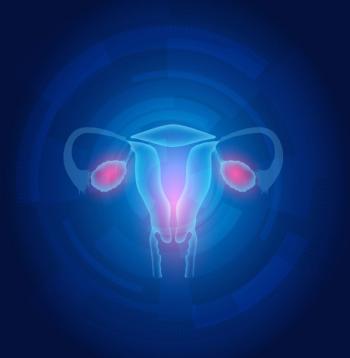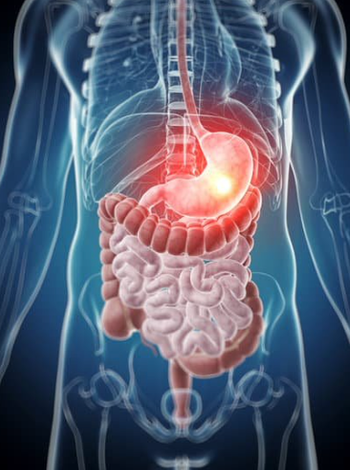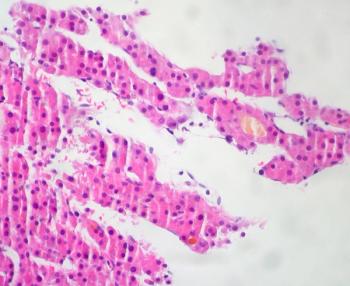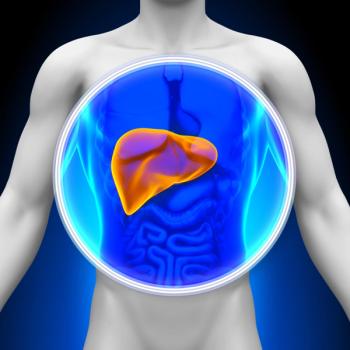Articles by Matthew Fowler

A retrospective study suggests that there might be an association between pre-existing TP53 clonal hematopoiesis of indeterminate potential variants and therapy-related myeloid neoplasms for patients with high-grade ovarian cancer following treatment with rucaparib.

Research estimates suggest that the cost of metastatic breast cancer, especially in younger and midlife women, is expected to rise from 2015 through 2030 along with the overall prevalence of cases.

The FDA granted Fast Track Designation to bemcentinib combined with a PD-L1 agent to treat patients with STK11 altered advanced/metastatic non–small cell lung cancer without actionable mutations.

The recent episode of the "Oncology Peer Review On-The-Go" podcast features Alexandra Sokolova, MD, discussing her article on germline testing and NCCN guidelines for patients with prostate cancer.

Research from the 2021 International Kidney Cancer Symposium North America identified prognostic value in cell cycle proliferation and epithelial-mesenchymal transition pathway scores in clear cell renal cell carcinoma in predicting survival and recurrence.

Those immunized between the ages of 12 and 13 in England experienced a significant estimated reduction in cervical cancer and grade 3 cervical intraepithelial neoplasia incidence rates compared with unvaccinated women.

A phase 1b/2 trial found that the combination of enasidenib plus azacytidine improved overall responses and was well tolerated compared with azacytidine monotherapy for patients with newly diagnosed, mutant-IDH2 acute myeloid leukemia.

Research from an observational study suggests it will take time for sexual satisfaction scores to improve among patients with erectile dysfunction due to robot-assisted radical prostatectomy for localized prostate cancer.

Daniel P. Petrylak, MD, spoke with CancerNetwork® about the results of the TROPHY U-01 study examining sacituzumab govitecan in the treatment of patients with metastatic urothelial carcinoma following failure of platinum-based chemotherapy.

Connie Batlevi, MD, PhD, detailed important updates in therapies for relapsed/refractory follicular lymphoma in this episode of CancerNetwork’s® podcast.

A phase 2 study found that acalabrutinib monotherapy followed by treatment with venetoclax and obinutuzumab in the frontline setting was highly active and tolerable for patients with previously untreated chronic lymphocytic leukemia despite not meeting the primary end point.

In the first episode of a 4-part series, CancerNetwork® spoke with Wade Iams, MD, about the various first-line treat options that are available for patients with small cell lung cancer.

Patients with locally advanced or metastatic biliary tract cancer who received either ramucirumab or merestinib in addition to standard first-line cisplatin and gemcitabine did not experience further survival benefit, although safety remained tolerable.

The presence of neuronal autoantibodies in patients with lung cancer, specifically small cell lung cancer and non–small cell lung cancer, appears to be associated with cognitive impairment.

Lyudmila A. Bazhenova, MD, and Federico Albrecht, MD, spoke about treating patients with EGFR-positive non–small cell lung cancer through randomized clinical trials and real-world studies.

The FDA granted accelerated approval to asciminib for the treatment of patients with Philadelphia chromosome–positive chronic myeloid leukemia for 2 indications.

Older patients undergoing treatment for B-cell malignancies who contracted the COVID-19 virus were at an increased risk of death vs patients with other cancers under the age of 60 years.

Patients with up to 5 oligometastases tolerated stereotactic body radiation therapy well, with investigators identifying a relatively safe toxicity profile of grade 2 or higher adverse effects.

A retrospective review found that external-beam radiation therapy has been underutilized as a bridging therapy in patients with hepatocellular carcinoma seeking transplant, although its prevalence has increased over the past decade.

CancerNetwork® spoke with Debra Patt, MD, PhD, MBA, about the role of telehealth in caring for patients with cancer during the COVID-19 pandemic and beyond.

A retrospective review identified that clinical practice patterns have changed from 2002 to 2020, with the use of immunotherapy increasing as chemotherapy and radiation therapy use has decreased for patients with Merkel cell carcinoma.

Brian Helfand, MD, PhD, and Steven Finkelstein, MD, FACRO, discussed the phase 2/3 EMPIRE-1 trial focusing on 18F-fluciclovine PET/CT imaging versus conventional imaging to guide postprostatectomy salvage radiotherapy for patients with prostate cancer.

Scott Tagawa, MD, MS, detailed 2 presentations from ESMO’s presidential symposium that he thinks will have an impact on treating patients with metastatic castration-sensitive prostate cancer.

The Society for Immunotherapy of Cancer published clinical practice guidelines for treating patients with breast cancer using immunotherapy.

Patients with recurrent/metastatic head and neck squamous cell carcinoma and a PD-L1 combined positive score of 1 or more and 20 or more experienced a clinical benefit with first-line nivolumab plus ipilimumab compared with the EXTREME regimen.

Results from a cohort study found that the rate of late mortality has decreased over the last 40 years for patients who transplantation at a younger age or who received a bone marrow transplant.

On this week’s podcast, Jun Gong, MD, spoke with CancerNetwork® about the potential role of plasma glutamine as a biomarker for patients with localized prostate cancer.

The phase 1b/2 CARTIRUDE-1 study found deep and durable responses, along with a tolerable safety profile with the recommended phase 2 dose of ciltacabtagene autoleucel for patients with relapsed or refractory multiple myeloma.

Josh Ludwig detailed to CancerNetwork® how ScaleReady can help make cell and gene therapy widely practical and viable for patients with cancer.

Tremelimumab plus durvalumab demonstrated encouraging safety and efficacy data compared with single agent durvalumab and tremelimumab in patients with unresectable hepatocellular carcinoma.

























